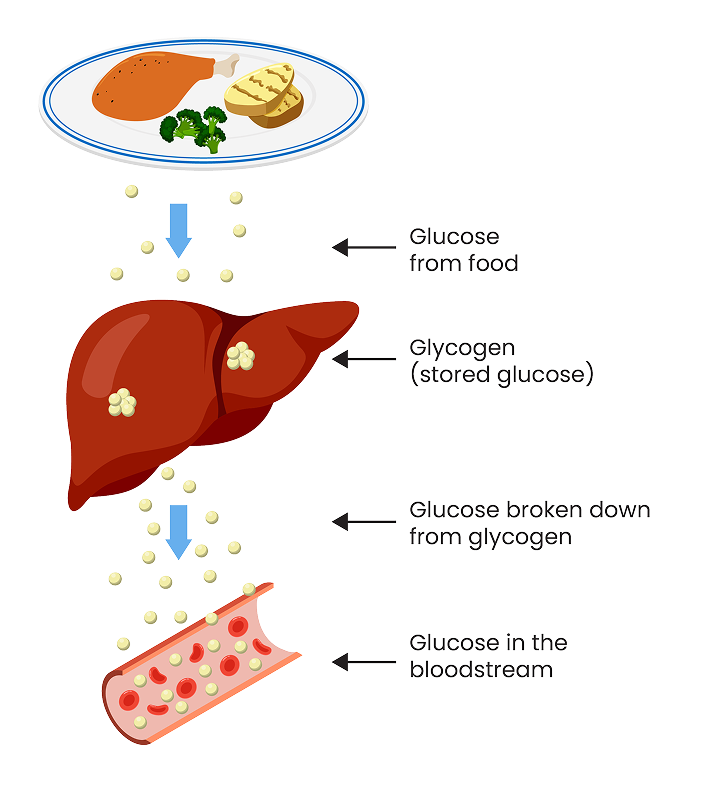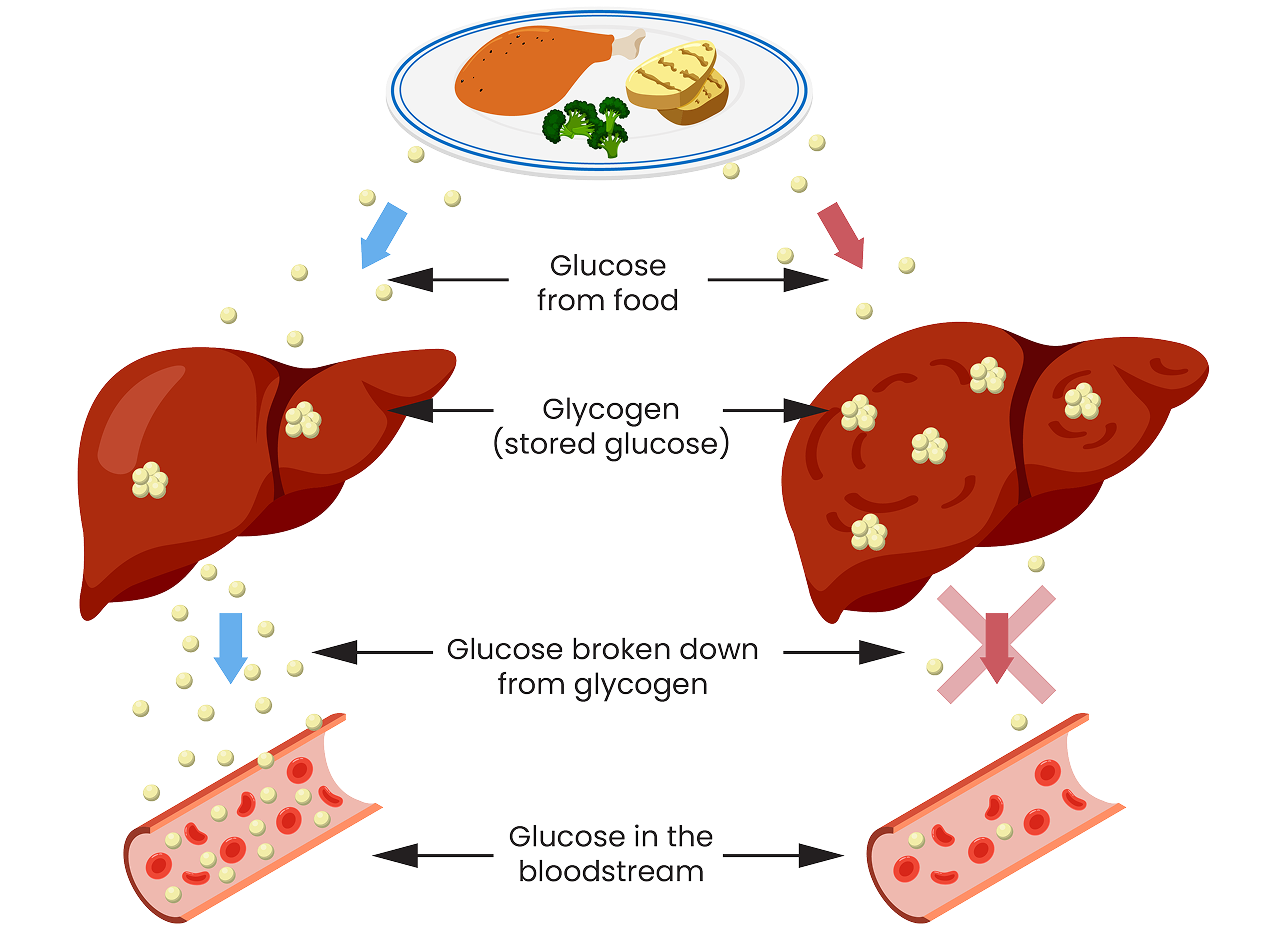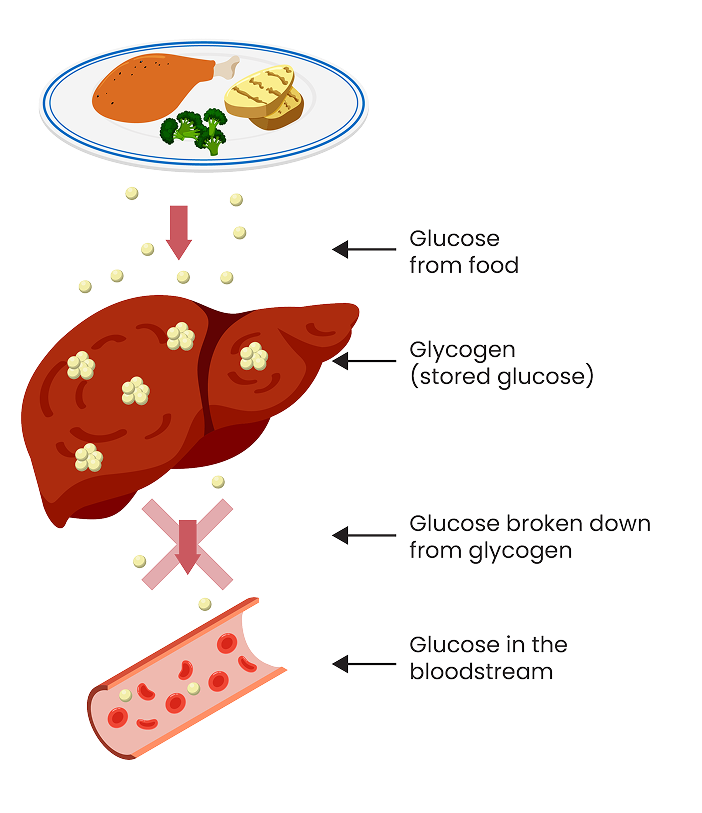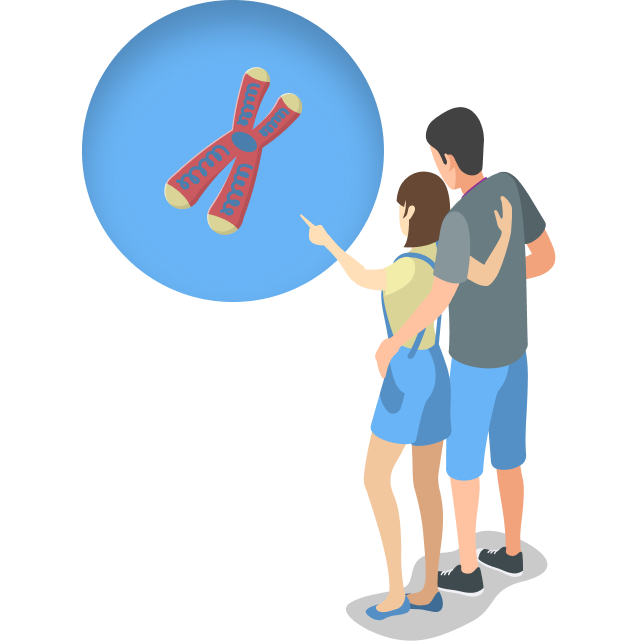This website uses cookies to provide you with a more responsive and personalized service. By clicking “Accept,” you agree to the use of cookies on this website. Please read our Cookie Policy and Privacy Policy for more information on the use of cookies on this website.
GlycogenGlycogen is a form of glucose that is stored in the body and broken down to be used for energy when it’s needed. storage disease type Ia (GSDIa) is caused by genetic variantsGene variants are changes in the DNA that makes up an individual’s genetic code. While most gene variants have no negative effects, some can lead to the development of diseases. in the G6PC gene, which typically produces an enzymeAn enzyme is a protein in your body that helps to speed up chemical reactions and is essential to keep them working properly. that helps keep glucoseGlucose is the sugar that the body uses for energy. levels stable. When the G6PC gene doesn’t function properly, metabolismMetabolism refers to anything related to the chemical changes that take place inside of cells when the body creates energy or other building blocks of life. is affected and individuals have an impaired ability to produce glucose. This leads to life-threatening hypoglycemiaHypoglycemia is a condition that occurs when there is too little glucose in the bloodstream. and causes glycogen to build up in the liver and other organs.
Examine the Metabolism of GSDIa
The body naturally converts food into glucose, which provides the energy needed to function and sustain life. Usually, when the body has excess glucose, it gets stored as glycogen in the body in a process known as glycogenesis.
Glycogen can be thought of as a sort of energy storage locker or bank. Sometimes the body requires extra energy, such as during sleep or between meals, during times of activity, stress, or illness, or when the body experiences hormone changes. At these times, glycogen gets broken down into glucose in a process known as glycogenolysis. The body then releases glucose into the bloodstream to provide energy for different parts of the body.
With GSDIa, the body is unable to create new glucose or break down glycogen to release glucose molecules due to variants in the G6PC gene. When glycogen can’t be broken down, it builds up in the liver and other organs, causing significant damage. And when glucose cannot be released into the bloodstream, the body experiences hypoglycemia. Without proper action, the hypoglycemia is so severe it can be life-threatening.
Typical Metabolism

Food is converted into glucose, which is used for energy throughout the body.
Excess glucose is stored as glycogen in the liver and other organs.
Glycogen is broken down into smaller glucose molecules or new glucose is made directly in the liver.
Glucose is released into the bloodstream, providing energy wherever it is needed.

GSDIa Metabolism

Food is converted into glucose, which is used for energy throughout the body.
Excess glucose is stored as glycogen in the liver and other organs.
The body is unable to break down glycogen or to create new glucose molecules due to the non-working G6PC gene.
Glycogen builds up and glucose cannot be released into the bloodstream, causing acute and potentially life-threatening hypoglycemia.
Understand How Impaired Metabolism Affects the Whole Body
Due to the fluctuations in blood glucose levels and the buildup of glycogen, individuals with GSDIa can experience both immediate and long-term complications.
Uncontrolled low blood glucose can lead to immediate problems such as lightheadedness, tremors, and even seizures.
Glycogen buildup and metabolic instability disrupt multiple systems in the body and cause damage to the liver and kidneys.
SystemicSystemic means affecting the entire body, rather than a single organ or body part. impacts such as developmental delays, cognitive impairment, liver disease, kidney failure, and death can occur over time.

